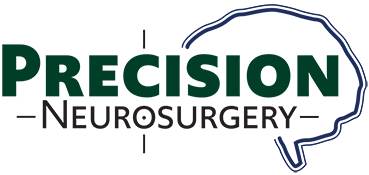Patient Education
Posterior Cervical Surgery - Post-op Instructions
Wound care
- Keep wound dry and covered for the first 5 days, but leave open to air after day 5
- You may shower after surgery, but tape up the edges of the dressing so the wound does not get wet while in shower for the first 5 days. After the first 5 days, you may shower with the wound uncovered but avoid scrubbing; simply allow soapy water to run over the wound. Avoid spraying wound directly with water. Pat dry and keep dry when out of the shower.
- Do not allow the wound to submerge under water (bathtub, pool, jacuzzi, etc) for the first month
- If wound is covered with Dermabond glue, this may begin to peel back on it’s own. If so, do not forcefully remove. Allow it to come off on its own.
- If wound is closed with staples or suture, these will be removed at the 2 week mark
- Ointments or creams are not necessary
- Mild drainage is normal, but notify office immediately for any foul smelling drainage or drainage that increases over time
Activity
- If involved in physical therapy, continue regimen as prescribed by physical therapist
- Gentle walking should be done daily. Have someone accompany you for the first few times until you feel comfortable. Avoid straining or bearing down.
- Avoid lifting anything greater than 5 lbs (about a gallon of milk) for the first 2 weeks, and 10lbs for the first 6 weeks. Do not push or pull yourself up with arms. Avoid using head/neck to adjust your head in bed
- neck flexion/extension and side to side rotation should be done several times daily for the first 2 weeks to avoid a frozen neck.
- If you were prescribed a collar , please use as directed. You may remove briefly to shower/bathe and eat
- Avoid driving for the first 2 weeks. Afterwards, you are safe to drive when not under the influence of pain medications and can easily turn your head to check your blind spot
- Avoidance of tobacco is essential to promote wound healing and bony fusion
Medications
- Take pain medication/muscle relaxers only as directed. You should begin to wean the amount and frequency of pain medications/muscle relaxers you take every couple of days or so
- Be sure to take a gentle over the counter laxative (Colace, etc) while taking pain medication to prevent constipation. Walking will also help with this.
- Take a general multivitamin daily for at least the first month after surgery
- Avoid resuming any blood thinners (Aspirin, Plavix, Coumadin, Eliquis, etc.) until cleared by the office
- For any refill requests, call the office only during regular office hours- Monday-Friday from 8am-5pm
Diet
- Continue your regular diet from before surgery unless directed by office.
- Eating plenty of protein is essential for wound healing. Boosts or other supplemental drinks may be helpful
- If diabetic, continue strict diabetic diet adherence to promote healthy wound healing
- Be sure to eat a diet high in fiber or take a fiber supplement daily for the first month
- Avoid alcohol
When to call office
- Any foul smelling or steadily increasing drainage from incision or increasing redness/swelling.
- Persistent fever greater than 101.4
- Increasing arm or leg weakness, or loss of control of bowels or bladder
- Calf tenderness or swelling, chest pain, shortness of breath, burning with urination
- Constipation not alleviated by over the counter laxatives or suppositories/enemas
*Please remember that it may take some time for numbness or pain to improve after spine surgery. Due to the healing process, you may have some pain in the surgical area for weeks after surgery*
Please be aware that this information is provided to supplement the care provided by your physician. It is neither intended nor implied to be a substitute for professional medical advice. CALL YOUR HEALTHCARE PROVIDER IMMEDIATELY IF YOU THINK YOU MAY HAVE A MEDICAL EMERGENCY. Always seek the advice of your physician or other qualified health provider prior to starting any new treatment or with any questions you may have regarding a medical condition.

Copyright © 2024 Precision Neurosurgery. All rights reserved.

